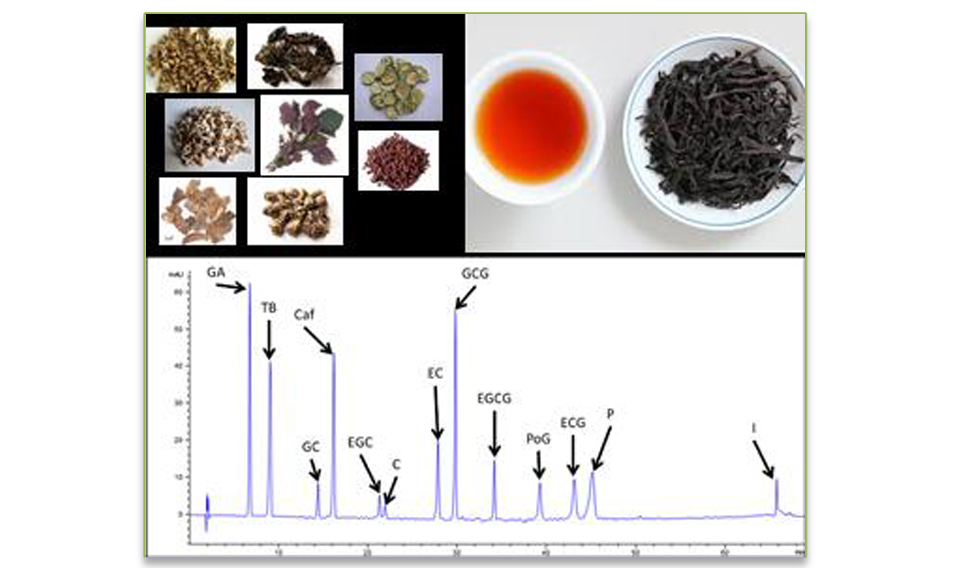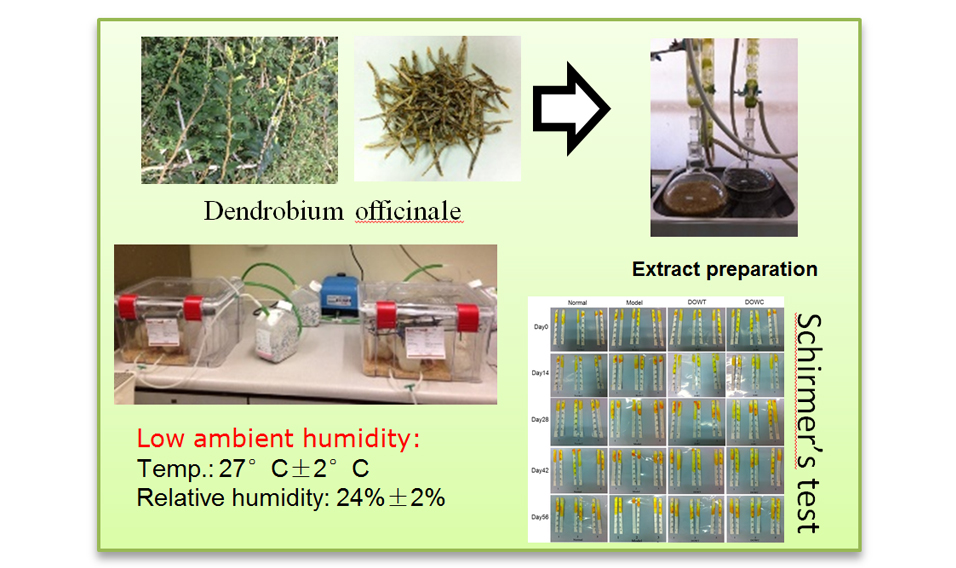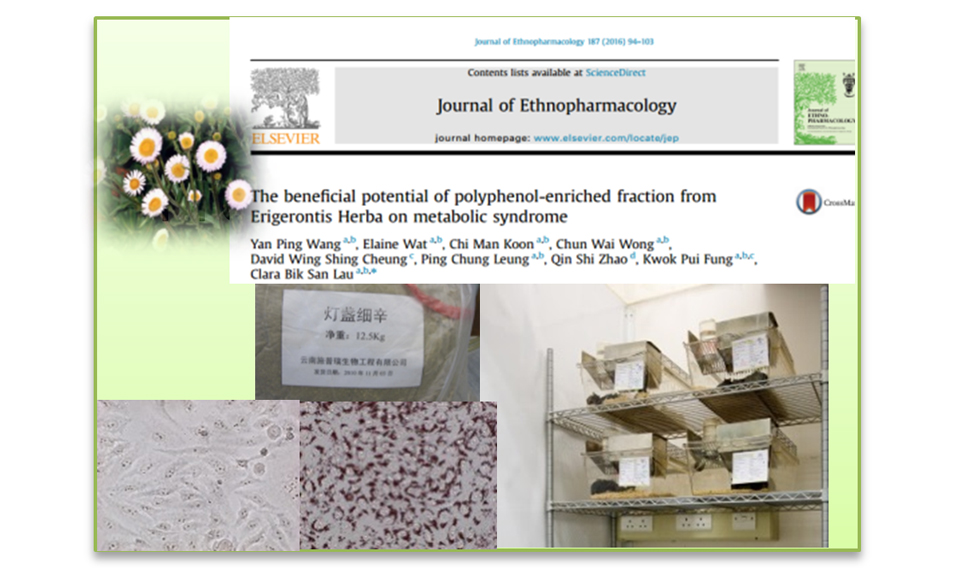Health Supplement Laboratory
Tea research

Green tea & Cocoa tea research
Tea is one of the most popular drinks in the world. It has been used as herbal remedy since ancient times in China. We found that tea is a good bone supportive supportive agent against osteoporosis in vitro and in vivo (supported by NSFC). Its interaction with anti-resorptives has been also studies (supported by the Food and Health Bureau, Hong Kong, Special Administration Region, Health and Medical Research Fund, no.11120301). In collaboration with Sun Yat-sen University, the health beneficial effects of a naturally decaffeinated tea, Cocoa tea (Camellia ptilophylla) were found. We showed that the administration of cocoa tea in high-fat diet-induced obesity mice resulted in dose-dependent reduction in body weight, fat pad mass, liver weight, total liver lipid, liver triglyceride and cholesterol, as well as plasma lipids (triglyceride and cholesterol). Besides, it is also a good muscle relaxant and anti-tumour agent.

Innovative functional teas
ICM is interested in investigating the beneficial effects of tea for the past ten years. The tea research group was officially set up with the aim of providing more in-depth research on the different types and health benefits of tea, as well as for promotion of tea culture in Hong Kong. We have produced four innovative functional teas with beneficial effect of lipid lowering and liver protection; allergy soothing; energy boosting; and immune system enhancement for protection against flu according to our past research experience. We have also ensured best taste of tea by using controlled fermentation processes and have invited tea experts to grade our functional teas. In addition, we have performed HPLC profiling to trace the bioactive markers from the herbal extracts and the tea itself would remain upon fermentation. After the confirmation of all the biological activities in these functional herbal tea, it can be promoted to the public with suitable commercial partner as an evidence-based, functional herbal tea. We also work closely and have regular visit with Professor Robert Hackman from the Department of Nutrition, UC Davis. He conduct clinical studies on the health benefits of fruits, nuts, wine, and botanical extracts and we discuss possible future collaborations with his lab group in UC Davis.

Promotive effect of Dendrobium on exocrine secretion
Our institute collaborates with the Kunming Institute of Botany to investigate the effect of Dendrobium species on exocrine function. The lacrimal gland cells have been isolated for mechanistic studies. We found that Dendrobium officinale aqueous extracts increased the expression of aquaporin 5 through activation of MAPKs pathways. Desiccated environment and constant airflow-induced dry eye disease rat model was established in our laboratory. We found that Dendrobium officinale water extract could increase the tear production and protect the conjunctiva against inflammatory oxidative damage afer 56 days treatment. Our data has provided a solid background for Dendrobium officinale to be developed into some novel interventions for dry eye and dry mouth diseases. (Supported by Chow Tai Fook Charity Foundation)

Erigerontis Herba in metabolic syndrome
Erigerontis Herba (EH) is a Chinese herb that is traditionally used to treat cardiovascular and cerebrovascular diseases. Its effect on diet-induced metabolic syndrome has not been previously investigated. Our laboratory uses different in vitro and in vivo platforms to investigate the effects of EH, EH containing herbal formulae and its polyphenol-enriched fraction (EHP) on diet-induced metabolic syndrome, and the underlying mechanism.